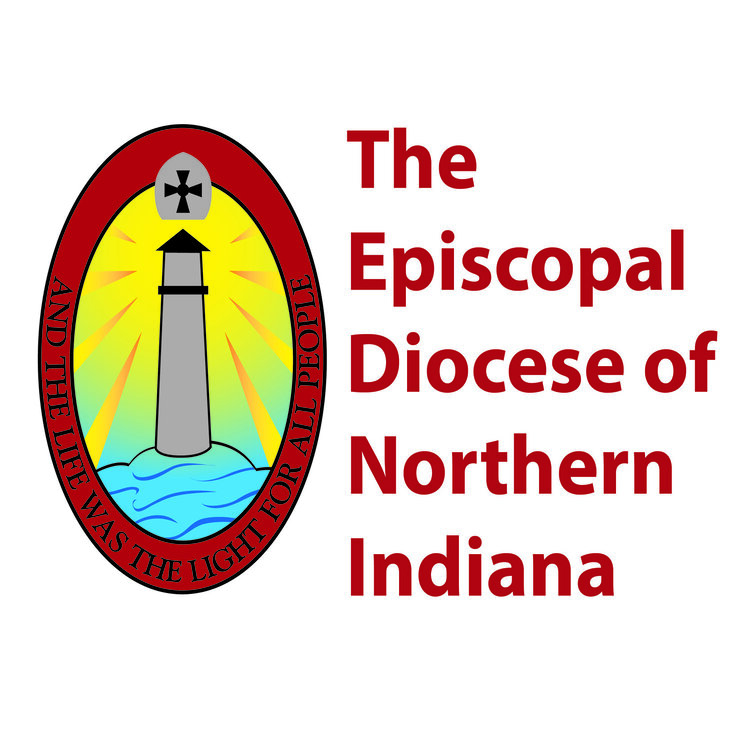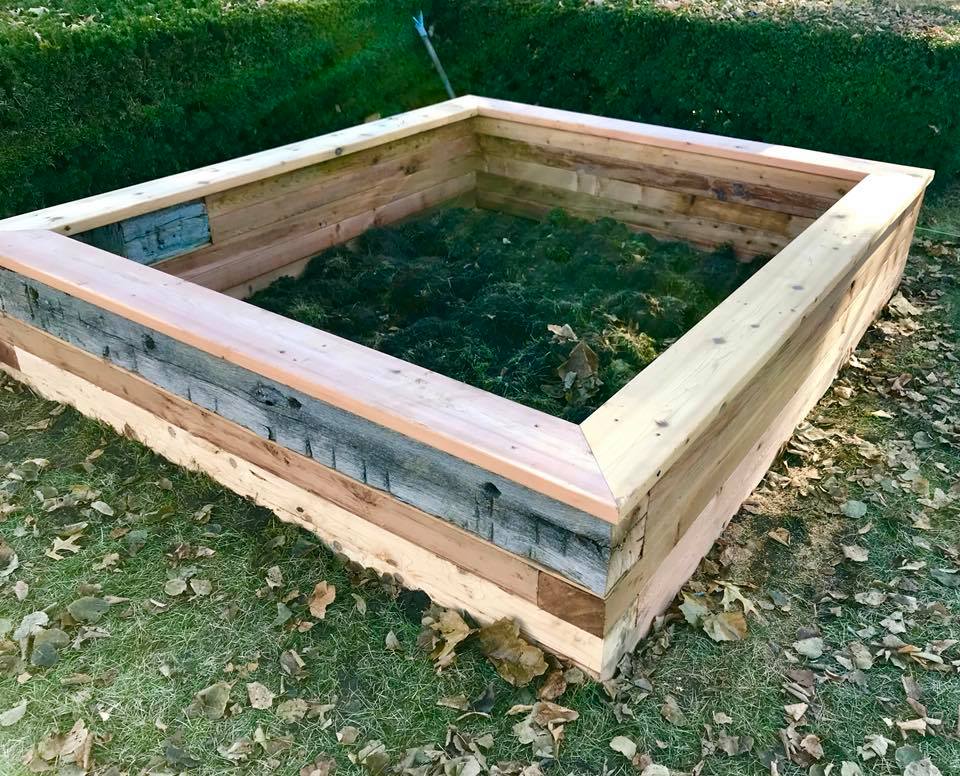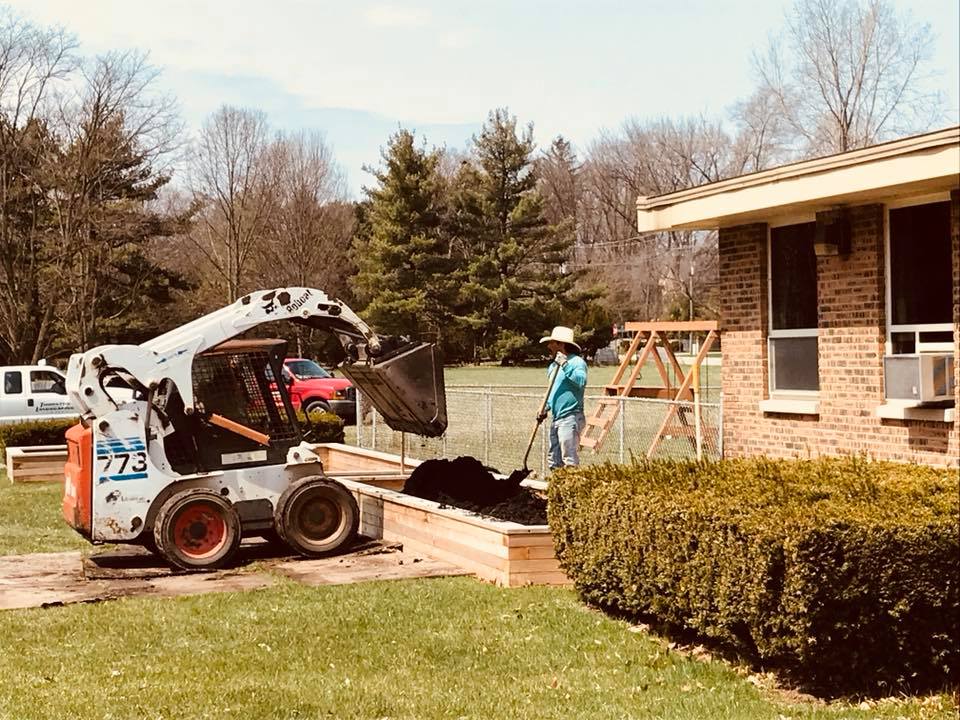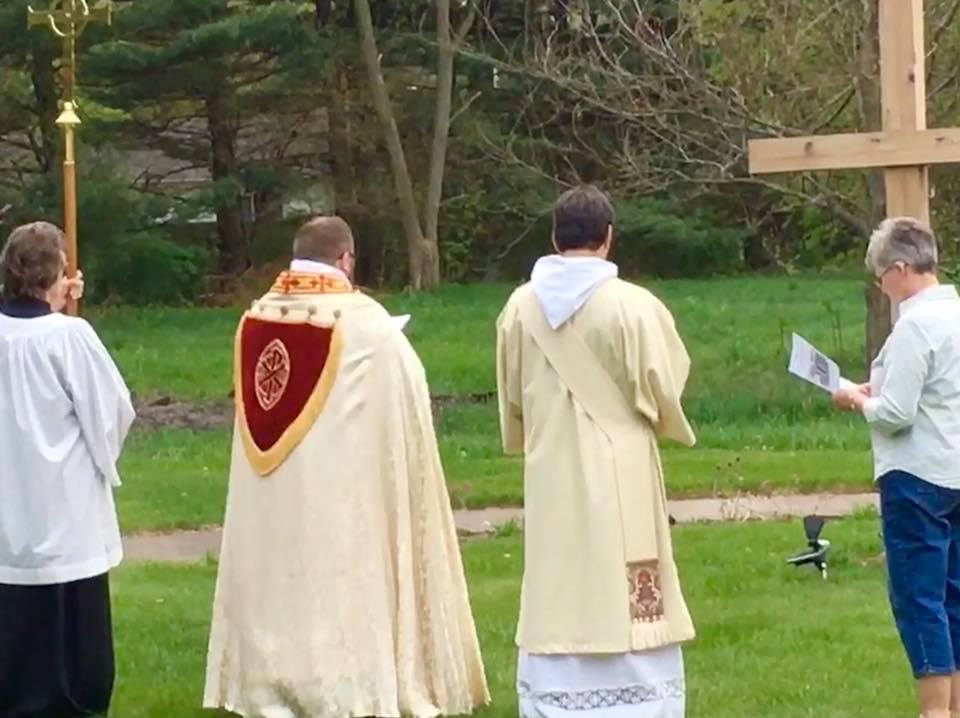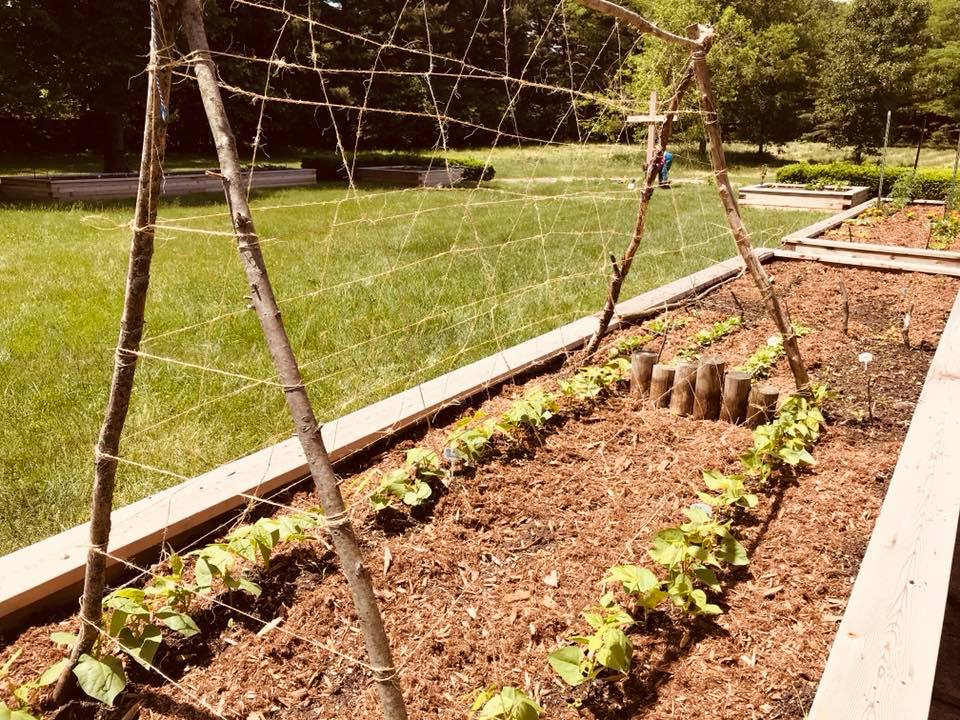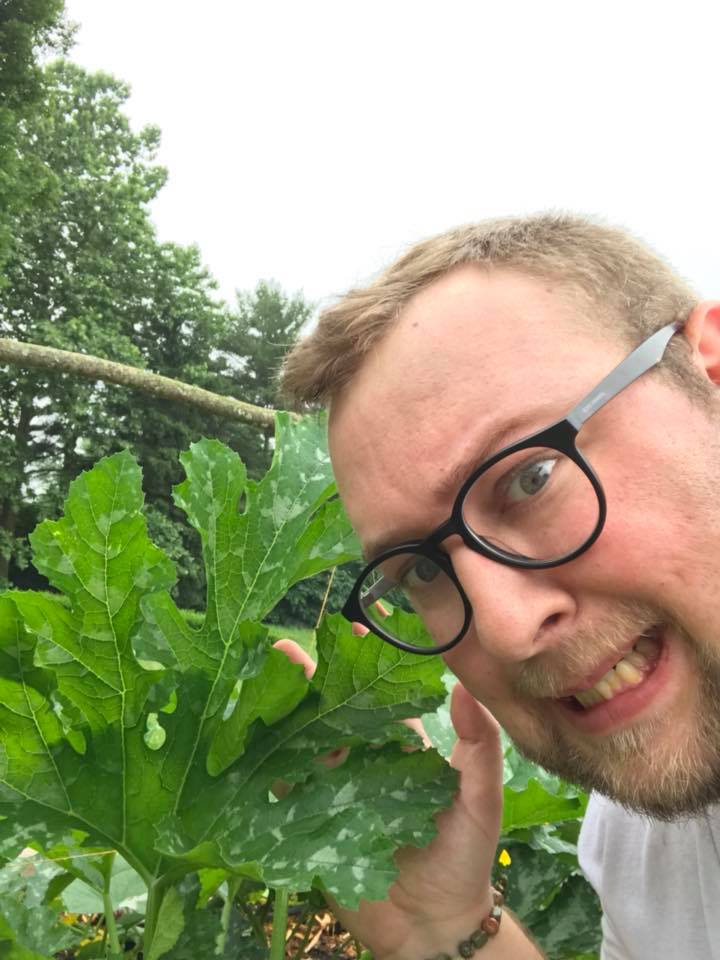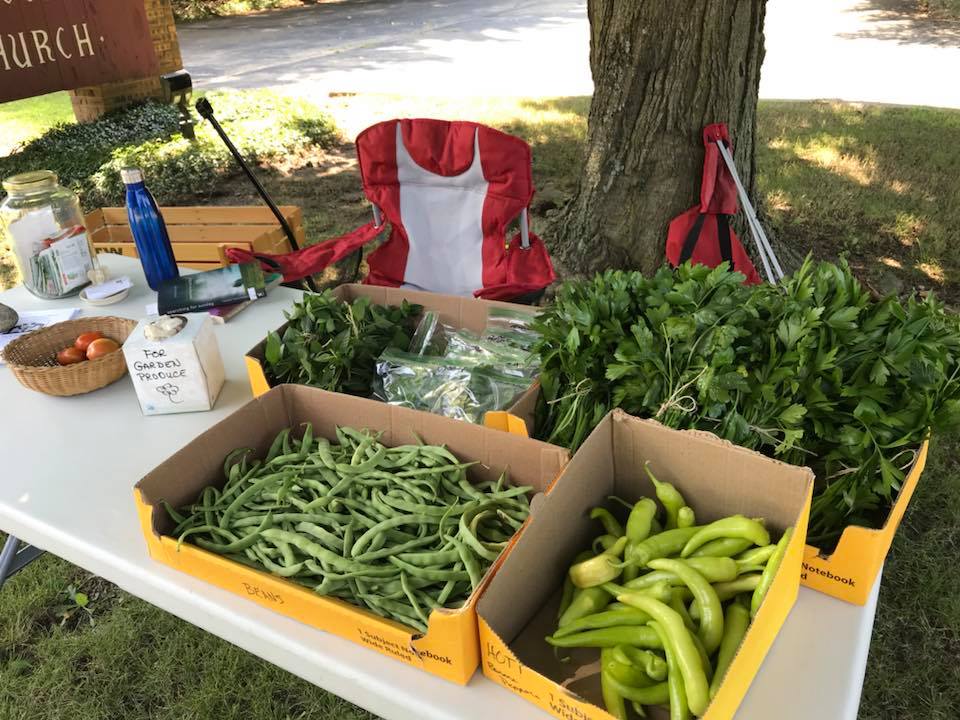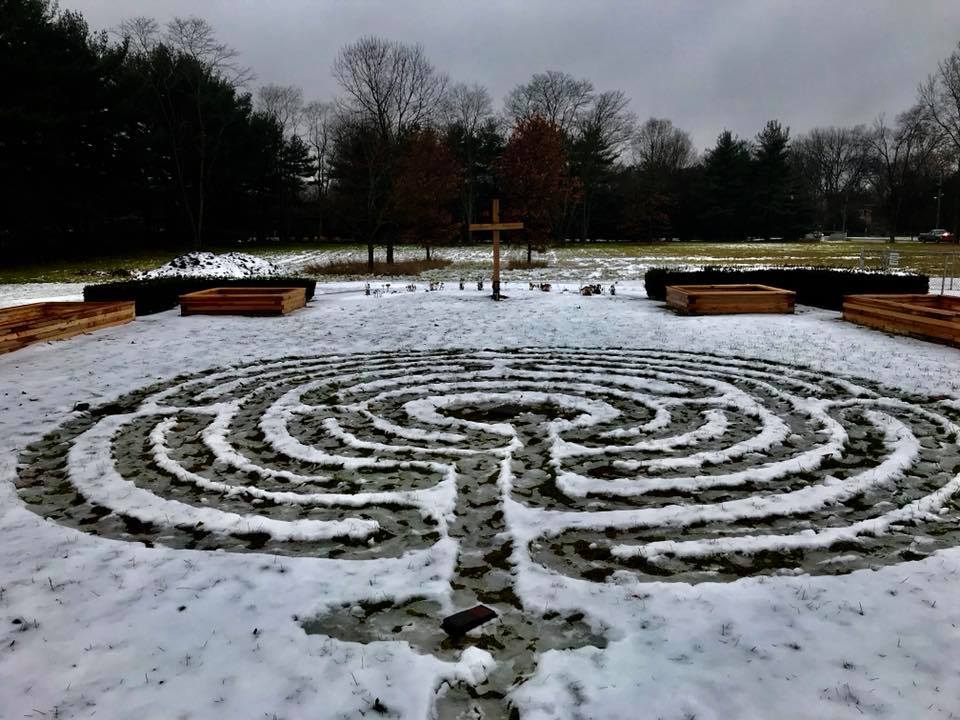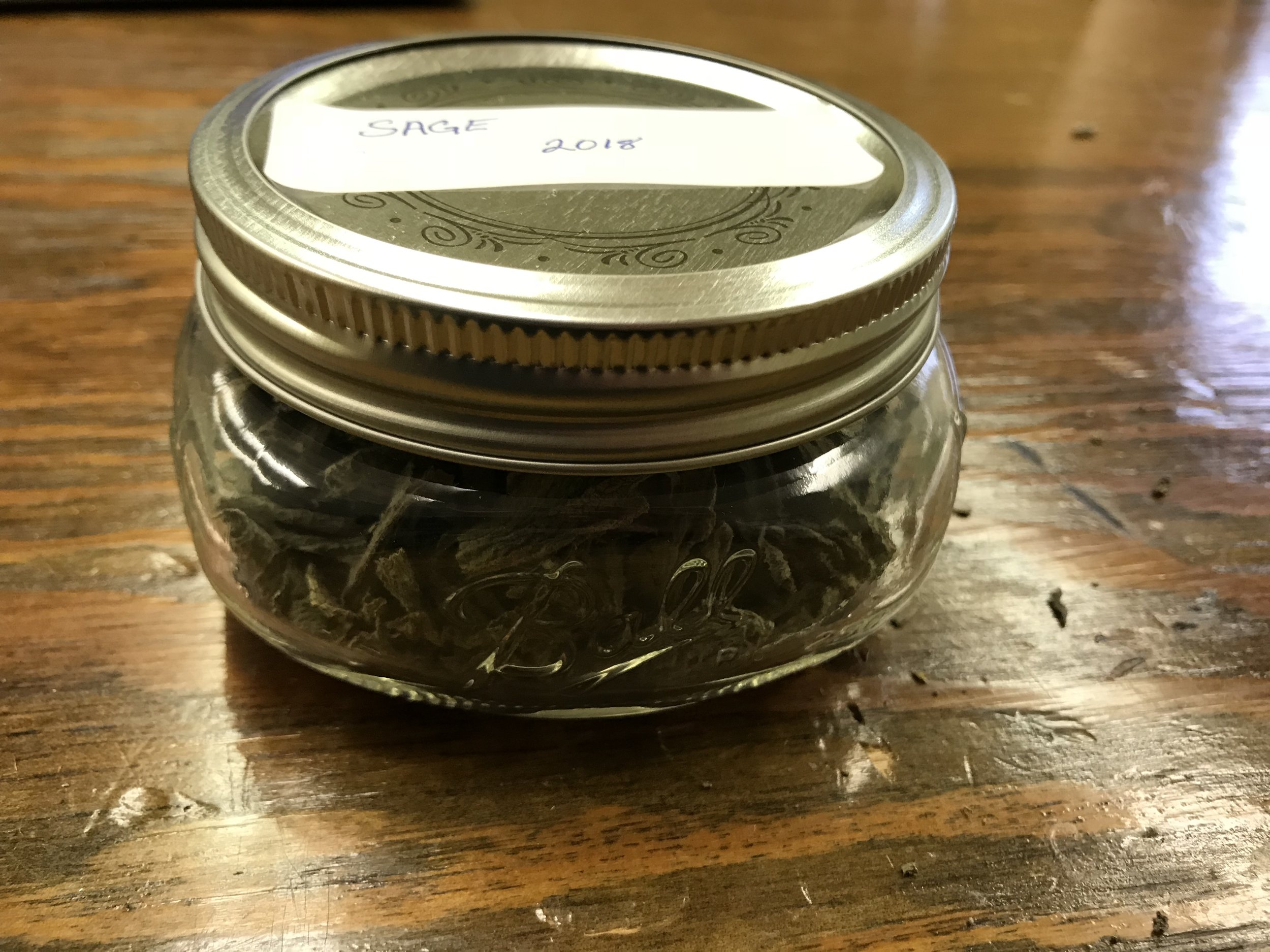On the day the Lord God made earth and heavens, no shrub of the field being yet on the earth and no plant of the field yet sprouted, for the LORD God had not caused rain to fall on the earth and there was no human to till the soil, and wetness would well from the earth to water all the surface of the soil, then the LORD God fashioned the human, humus from the soil, and blew into his nostrils the breath of life, and the human became a living creature.
And the LORD God planted a garden in Eden, to the east, and He placed there the human He had fashioned. [ . . . ] And the LORD God took the human and set him down in the garden of Eden to till it and watch it.
Chapter two of the First Book of Moses contains the older of the two creation accounts. In these few paragraphs, we find a much more intimate portrait of the relationship between the Creator, the creation, and the ‘adam, the special creature which the Creator places in the midst of a newly planted garden to till it and watch it.
The first word used in v. 15, לעבדה is pretty straight forward. It mean’s till or cultivate. Words specifically used for agricultural references. But the second word, לשמרה meaning and watch her, is used elsewhere with militaristic connotations. By this translation, the Creator has placed the special creature in the garden to cultivate the soil, joining the Creator in the act of creating, and to protect the creation. A far cry from the long-standing view that we are to subdue and hold dominion over creation. In this reading, the garden is not made for humanity; humanity is made for the garden.
This deeper understanding of the first command given by God to humanity should change and focus our relationship with our environment, with the food we eat, the water we drink, and the waste we produce. Our relationship with creation is directly related to our relationship with the Creator. If we do not honor the Earth, then how can we say we honor God? For cultivating and protecting creation is another way by which we love our neighbor.
So what does this mean for us as individuals and faith communities? Hopefully, a reorientation of thinking about creation will inspire us all to get creative (pun intended) about the ways we might follow the command that God the Creator gave to humanity when the earth was new. While the wider church is doing things on a national and global level to educate, lobby, and financially change our current practices in order to better support eco-justice, end environmental racism, and diminish our church's role in humanities ever-increasing carbon footprint, we can do small things on a daily basis and local level to better live into our purpose “in the garden.”
Some of these are already happening in homes and faith communities across our diocese. Many are making commitments to decrease the amount of paper, styrofoam, and plastic used at community gatherings. Simply having member donate at least one mug from home to replace styrofoam cups at coffee hour can make a big difference, not to mention the costs saved. Setting up a parish recycling station in a visible location can encourage less waste and keep the communities eyes on the number of products we dispose of on a weekly basis.
Four of our faith communities have taken things beyond our walls by developing and maintaining Unity Gardens. St. David's in Elkhart, St. Timothy's in Griffith, Holy Trinity in South Bend and All Saints' in Syracuse all have herbs and vegetables planted for harvesting by those in our local communities, especially those in need. Being most acquainted with the Unity Garden at St. David’s, I can offer a few stories about our first season.
Our garden is made up of seven raised beds and a converted flower bed next to the nave’s west wall. This space had gone mostly unused for many years although it contained some nice bushes and a sidewalk built in a basilica outline. After the beds were installed and the first seeds were planted, this space took on a whole new spirit. Strangers came from all around to harvest the fruits being produced. Some came to simply sit in the quiet of nature; something disappearing quickly on the north side of Elkhart as more and more hotels and businesses go up just around the corner. I would collect surplus produce and take it to the apartment complex next door or to the teachers and staff working in the Elementary School across the street as they prepared for classes to begin in early August. We even took one day to set a table up by the side of the road with a “pay what you can” farmers market just to get rid of some of our beans. Parishioners began coming early to Mass just to spend some time in the garden, worshiping God in creation before approaching the altar. The area where our garden set became known as a Creation Chapel, and we started to hold Mass in the Meadow and other events outdoors surrounded by the beauty of creation. For our neighbors, it became a dog park, a grocery store, and a quiet place. For our congregation it became a living parable, teaching us new things about God, ourselves, and each other, every single day. Over the winter, I attended an evening workshop at the Elkhart County Environmental Center on worm composting. We learned about various ways to introduce worm composting to our own homes and business and built bins for such a purpose. Since then, the 250 worm members of St. David’s (red crawlers if you are interested), have lived contently in our coat room, converting our weekly used coffee grounds and various meal bi-products we bring from home into compost for our garden and indoor plants. Just another way that we strive to till and protect this garden. This year we hope to introduce rain barrels and filtering plants to clean and use the runoff from our roof and parking lot. You can follow our progress on the Unity Garden Facebook Page, and all are welcome to come and pull weeds, harvest some squash, or simply explore the living parable.
Unity Gardens and worm composting are certainly not for everyone, but there are many things you can do as individuals or faith communities to get closer to the earth and work to fulfill the roles given us by our Creator. All it takes is a little imagination and perhaps some holy wisdom, but being of the earth we are all connected to the earth and must do something, no matter how small, to protect it. Last year on Earth Day, I had the great privilege to be with Fr. Tom Adamson and some of the youth of Holy Family in Angola, as they planted three new trees on the property. They stand as a physical reminder, to every person who pulls into the parking lot of our responsibility to continue the work of creation.
This year, Earth Day (April 22) falls on Easter Monday. This is a time that we as a liturgical people are encouraged to respond to the resurrection of Jesus, seeing in him a new Adam and a new creation. What a wonderful time to connect what we are hearing in worship with what we are called to do in the world. How wonderful, if at least for that one day, we each chose to preach the good news of Jesus Christ by taking on the mantle of the new ‘adam and spending some time in the garden. Sometimes, evangelism looks like picking up trash in the yard, using less plastic in our homes, planting a tree, or sharing some beans with our neighbor.
The Episcopal Church’s website has many resources for such work and I encourage you all to take a look at what is available. Our Bishop’s have called on all of us to take the Creation Care Pledge, promising as individuals and faith communities to live into this command.
Our own Bishop, Doug Sparks, has asked me to form a Creation Care Committee for our Diocese. We hope this will be a multi-generational group that will help bring the work of our communities together, offer educational opportunities, as well as resources and encouragement to expand our “green thumb” as a diocese and take on the challenge of Genesis 2:15. If you are interested in being part of such a group, please send an email to Fr. Joshua Nelson at stdavidpriest@gmail.com. Together may we go to the garden to till and protect what God has created. Learn more about Creation Care in EDNIN.
Happy Easter and Happy Earth Day.
Joshua+
Written by the Rev. Joshua Nelson, Rector of St. David’s Episcopal Church (Elkhart)
